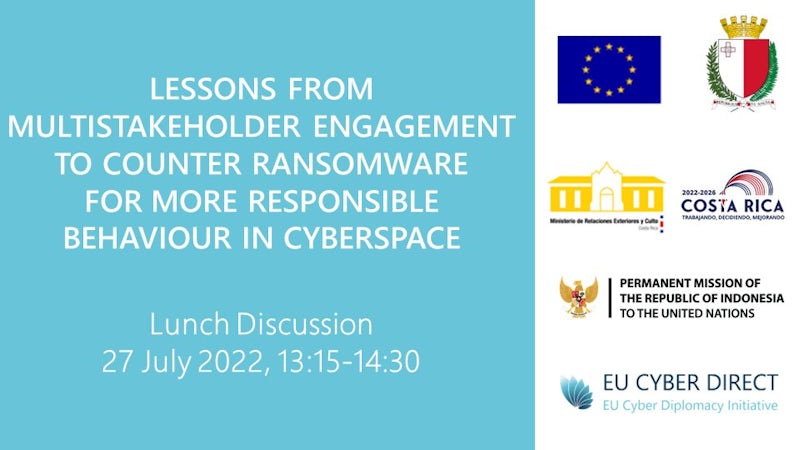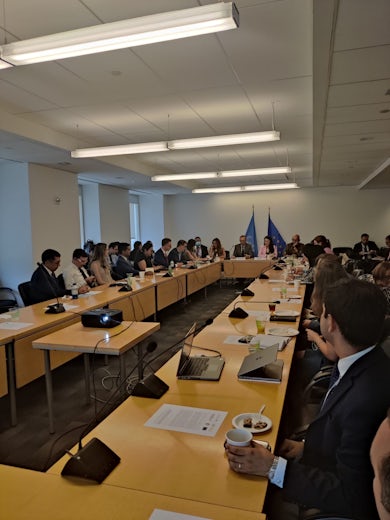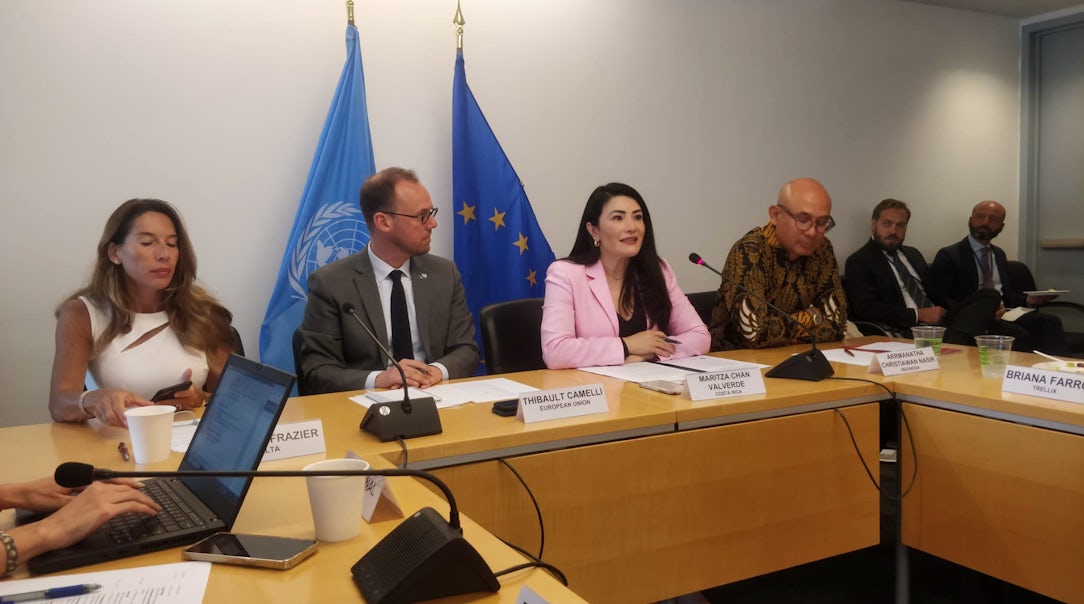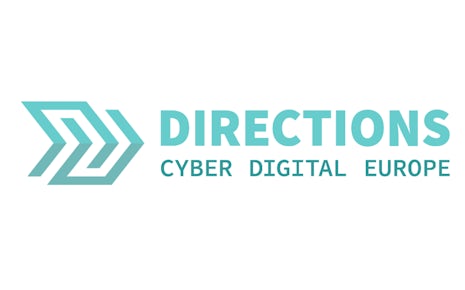What is the contribution of non-governmental stakeholders in strengthening the framework for responsible state behaviour in cyberspace? How can they support the implementation of the UN framework or contribute to overall stability in cyberspace?
These questions are often raised in the context of multistakeholder engagement in UN processes. Consequently, non-governmental stakeholders representing research institutes, civil society, and the private sector are compelled to prove that they deserve a place at the negotiating table. However, as multiple examples demonstrate, governments need to build alliances with other stakeholders, despite their central role in promoting responsible state behaviour in cyberspace. Limited resources, lack of expertise, or insufficient capacities can be serious impediments for states to meet their commitments or exercise their rights.
In a lunch discussion co-hosted by the European Union Delegation to the UN, the Permanent Mission of Costa Rica to the UN, the Permanent Mission of Indonesia to the UN, and the Permanent Mission of Malta to the UN, this side event to the United Nations Open-Ended Working Group on ICT aimed to analyse concrete examples of multistakeholder cooperation against ransomware attacks to document the contribution of mulitstakeholder cooperation to strengthening specific elements of the framework for responsible state behaviour in cyberspace.
Following opening remarks from the Chargé d'affaires of EU Delegation to the United Nations Thibault Camelli, and Ambassador Vanessa Frazier from the permanent Representative of Malta to the United Nations, the event featured reflections on the role of multistakeholder engagement in the peace and security of cyberspace from the UN Office for Disarmament Affairs. This was followed by an intervention on Ransomware as a national emergency by ambassador Maritza Chan Valverde, permanent representative of Costa Rica to the UN. Building on these perspectives, panellists outlined concrete examples of how the multistakeholder community help address key challenges to international security in cyberspace through initiatives like No More Ransom, the Oxford Process on International Law, and the Institute for Security and Technology’s Ransomware Task Force.





